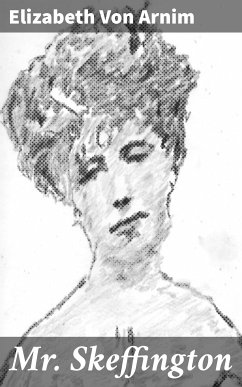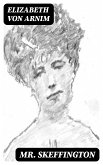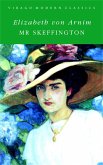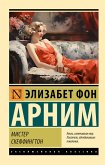In "Mr. Skeffington," Elizabeth Von Arnim crafts a sharp and poignant exploration of beauty, love, and the complexities of human relationships in post-World War I society. Through the eyes of the glamorous and aging protagonist, Fanny Skeffington, the narrative reveals the intertwining themes of self-worth and societal expectations. Von Arnim's elegant prose and rich character portrayals draw readers into a world where superficial appearances clash with deeper emotional realities, emphasizing the societal pressures women faced during the early 20th century. The literary style is marked by wit and irony, reflecting the author's keen observational humor and timely insights into the life of a woman navigating her waning desirability in a materialistic world. Elizabeth Von Arnim, a notable figure of the literary modernist movement, was born in Australia but spent much of her life in England and on the continent. Influenced by her own experiences with love, society, and personal identity, Von Arnim wrote "Mr. Skeffington" as a response to her observations on femininity and the societal constructs surrounding beauty. Her ability to dissect these themes is a testament to her own struggles, particularly in the wake of World War I, where traditional gender roles were being reexamined. "Mr. Skeffington" is a compelling read for those intrigued by literature that merges social commentary with the nuances of personal relationships. It invites readers to reflect on their perceptions of beauty and the often-unforgiving nature of societal standards. This remarkable novel is not only a reflection of its time but also an enduring examination of the human condition, making it a must-read for modern audiences.
Dieser Download kann aus rechtlichen Gründen nur mit Rechnungsadresse in A, B, BG, CY, CZ, D, DK, EW, E, FIN, F, GR, H, IRL, I, LT, L, LR, M, NL, PL, P, R, S, SLO, SK ausgeliefert werden.









